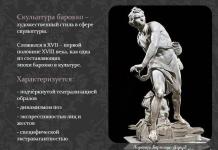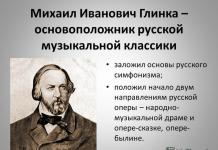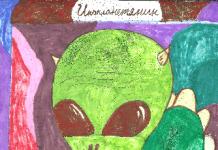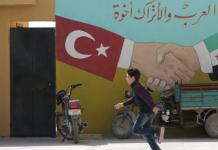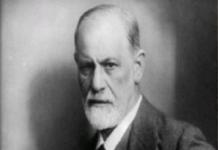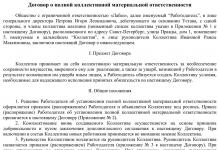Faithful sons of the Fatherland... Class hour dedicated to Defender of the Fatherland Day.
“So you may not be a poet, but you must be a citizen...” The class hour is aimed at developing knowledge of legal culture among students and correcting moral behavior.
Symbols of the Russian state.
Let's save our common home! Class hour contributes to the formation of students' environmental culture.
“Thank you to our mothers...” Class hour dedicated to Mother's Day.
“We know, we remember, we believe...” Festive class hour dedicated to Victory Day.
“We magnify this bright holiday...” Class hour introducing students to the tradition of celebrating Easter in Rus'.
“My years are my wealth...” Festive class hour dedicated to the Day of the Elderly.
"Fathers and Sons".
New Year.
Dangers facing modern youth.
“Computer games are an escape from reality,”
"Abortion and contraception"
"Terrorism in our lives."
Fostering interethnic tolerance
Traditions of tolerance in the culture of the peoples of the North Caucasus
What is tolerance?
Problems of terrorist activity in the North Caucasus and ways to normalize the situation in the region
"Towers of Peace" in the Caucasus
Children of the North Caucasus learn peace and tolerance
Moral and aesthetic education
How to resist aggression and resolve conflict?
Forgiveness or revenge? Class hour devoted to moral problems of human choice.
Depression and ways to deal with it. Learn to control yourself (about the need for self-education).
Man and his manners (about the culture of behavior).
About sex education (conversations, meeting with a gynecologist,
urologist).
The world of my hobbies (about leisure culture).
Let's talk about tact.
Mood and its power over a person (about self-education)
Man is part of nature.
Ecology and health of future Russia.
For a cup of tea (student, tell us about yourself).
Nurturing a healthy lifestyle
Smoking shortens life.
Drunkenness and alcoholism.
The truth about drugs.
Let's say "No" to smoking!
Sport is the key to health.
Youth against drugs.
Alcohol and offspring (about the prevention of alcoholism).
AIDS is the terrible disease of the century.
Say no to drugs!
Health and longevity.
Nurturing compassion and love for the future profession
Oh, medicine! I sing about you!
Talent and work (meeting with college graduates, hospital workers).
Why did I choose the medical profession?
We will dedicate our beautiful impulses to medicine.
Studying well means working hard.
We are future specialists, we are the future of Russia.
Mercy is the main commandment of a health worker.
A kaleidoscope of good deeds (helping veterans, healthcare facilities, participation in the “Generous Autumn”, “Soldier’s Envelope”, “Hurry to Do Good” campaigns).
Civic-patriotic education
Rights and responsibilities of a student at the Pyatigorsk Medical School.
Person and law.
My college is my destiny.
Responsibility and safety. What is hidden behind these words?
The country I would like to live in.
“I have the right to...” - a conversation on a given topic.
And if it didn’t work out?... What's next? - dispute
I am among people, people are around me.
What kind of upbringing will I leave about myself at the educational institution?
My professional choice. Am I right or wrong?
How to get along with people (love, build relationships, find understanding with adults, be friends with comrades).
Self-education. Self-improvement goals.
Cruelty, indifference and sympathy.
The ability to communicate is the path to success.
How to learn to manage yourself.
Memory training is the key to future success.
Man and creativity. Great creations of mankind.
How to learn to control yourself?
As long as I think, I live.
Humor in human life.
Why do we study?
Ecology. Pollution and science.
Difficulties of professional self-determination (classification of professions for orientation in the world of work, algorithm for choosing a profession.)
Self-education as an “expansion” of consciousness.
Ten commandments of a creative person.
Professional self-determination, its connection with the choice of path to continue education (multi-stage education, preparatory courses.)
And you have to be a citizen...
Morality and law.
Administrative and criminal liability.
Army and military conscription.
Family in a person's life.
Offenses and crimes.
Responsibility of minors.
Constitutional rights and responsibilities of citizens.
Human legal culture.
Citizenship. What is the meaning of this concept?
Let's say NO to drugs.
About the dangers of smoking.
About the dangers of alcohol addiction.
Stress is an inevitable part of life.
AIDS and sexually transmitted diseases.
Relations with the police.
Health. How to save it?
Indirect signs of drug use and drug addiction.
Behavior in extreme situations.
Vocational Pedagogical College of the State Educational Institution of Higher Education of the Moscow Region "State Humanitarian and Technological University"
Methodological development of a thematic class hour on the topic: “Tolerant communication”
Teacher-psychologist: Larionova E. V.
The date of the:
"___" ________ 2016
Orekhovo-Zuevo, 2016
Class hour on the topic: “Tolerant communication”
Goals:
Fostering in adolescents a love of peace, acceptance and understanding of other people, and the ability to interact positively with them;
Formation of a negative attitude towards violence and aggression in any form;
Formation of respect and recognition for oneself and for people, for their culture;
Development of the ability for tolerant communication, for constructive interaction with representatives of society, regardless of their affiliation and worldview;
Tasks:
Educational: introduce students to the concept of “tolerance”, find out the causes of extremism and terrorism.
Educational: teach students to analyze events, draw conclusions, be able to convincingly and convincingly prove their point of view, develop the ability to adequately and fully know themselves and other people.
Educational: to cultivate a sense of patriotism, collectivism, cohesion, to promote the development of respectful relationships between students, to cultivate a sense of non-acceptance of violence, terrorism and extremism.
Equipment: media projector, presentation for class, video, handouts (questionnaire, reminders), box.
Preliminary work : students are informed in advance about the topic of this event and given a special task (find the definition of words in dictionaries: tolerance, extremism, terrorism).
Progress of the event.
Educational psychologist . (slide 1-3) In life, a person communicates with representatives of different nationalities, cultures, worlds, and social classes. Even in our college, children of different nationalities study in groups. We are all different, we differ in appearance, feelings, ideas, lifestyle, and at the same time we treat each other differently. How should we build relationships among ourselves? In order for a person to feel comfortable in society, he must have many qualities. One of them is tolerance.
What does the word meantolerance ? How is this word defined in different languages around the world?
Student. (slide 4.5) Tolerance is respect, acceptance and proper understanding of the rich diversity of cultures of our world, forms of self-expression and ways of manifesting human individuality.
Word definitiontolerance It sounds different in different languages of the world:
INSpanish it means the ability to recognize ideas or opinions different from one's own;
InFrench - an attitude in which it is accepted that others may think or act differently than oneself;
INEnglish – willingness to be tolerant, condescending;
INChinese – allow, accept, be generous towards others;
INArabic – forgiveness, forbearance, gentleness, mercy, compassion, benevolence, patience, disposition towards others;
INRussian – the ability to endure something or someone (to be self-possessed, hardy, persistent, to be able to put up with the existence of something, someone).
Educational psychologist. – Which definition appeals to you most?
Why do you think definitions are different in different countries?
What do these definitions have in common?
Now listen to the definition of tolerance given in the “Declaration of Principles of Tolerance” (signed on November 16, 1995 in Paris by 185 UNESCO states, including Russia).(slide 6)
Tolerance means “respect for and proper understanding of the rich diversity of our world’s cultures, our forms of self-expression and the ways in which we are human. It is promoted by knowledge, openness, communication and freedom of thought, conscience and belief. This is not only a moral duty, but also a political and legal necessity. Tolerance is a virtue that makes peace possible and helps replace the culture of war with a culture of peace.”
Educational psychologist Andstudents doconclusion : tolerance – this is not passive submission to the opinions, views and actions of others, not submissive patience, but an active moral position and psychological readiness for tolerance in the name of positive interaction between ethnic groups, social groups, in the name of positive interaction with people of a different cultural, national, religious or social environment .
I depicted “tolerance” as a sun. Its rays will be your responses reflecting this quality of personality. (Students choose from the proposed qualities and add their own).
Conclusion: The sun warms the whole world, and a tolerant person, doing good deeds, becomes better, cleaner, brighter. Goodness and warmth emanate from her. There are always friends around her, happiness reigns. A tolerant person understands others and always comes to the rescue.
Educational psychologist. Among the qualities offered to you were such as selfishness, indifference, and cynicism. Of course, these qualities characterize an intolerant person. There are two ways of personality development - tolerant and intolerant. Describe these two personalities in comparison.(Students' answers) .
The intolerant path is characterized by a person’s idea of his own exclusivity, a low level of education, a feeling of discomfort in existing in the reality around him, a desire for power, and rejection of opposing views, traditions and customs. Intolerant individuals divide the world into two parts: black and white. There are no halftones for them. There are only two kinds of people - bad and good. They emphasize the differences between “us” and “outsiders.”
The tolerant path is the path of a person who knows himself well, feels comfortable in the environment, understands other people and is always ready to help, a person with a friendly attitude towards other cultures, views, and traditions. A tolerant person sees the world in all its diversity.(slide 7)
So, we see that the term “tolerance” is voluminous and multifaceted. Why do you think this problem of tolerance is especially relevant for modern Russia? (Students' answers)
Educational psychologist. Recently, in our country there has been a growing number of manifestations of persistent hostility and intolerance towards “other” culture, way of life, language, and beliefs. The objects of discrimination are Chechens and representatives of other peoples of the North Caucasus, people from Central Asia, and refugees.
Humanity has always been at war. Over the past five thousand years, about 15,000 large and small wars have been recorded, in which several billion people died. 65 years ago the battles of the Great Patriotic War died down. While putting pressure on the fascists, our fathers and grandfathers dreamed and firmly believed that after victory there would be no more wars on the planet and an amazing time of universal brotherhood would come. Victory was won, but universal peace never came.
Local wars and military conflicts related to religious, territorial and national disputes continued. Such an ominous phenomenon as terrorism is increasingly intruding into our seemingly peaceful life. Terrorism is also war. And no one is safe from it. Including us.
Student. (slide 8) The phenomenon of terrorism in our time has managed to deeply penetrate the minds and hearts of people all over the planet. Now every first-grader knows that there are people in the world called terrorists who blow up houses and kill people. This is the general information that constantly comes to us from TV screens.
Terrorism "terror"translated as "horror" (intimidation with capital punishment, murder and all the horrors of fury).
Terrorism is the conscious use of illegitimate violence (most often with a deliberate focus on a spectacular, dramatic effect) on the part of some group, thereby seeking to achieve certain goals that are obviously unattainable in a legitimate way.
The growth of extremism is a serious threat to stability and public safety. International terrorism is a set of socially dangerous acts on an international scale, leading to the senseless death of people, disrupting the normal diplomatic activities of states and their representatives and complicating the implementation of international contacts and meetings, as well as transport links between states. Let's try to understand the causes of extremism and terrorism. Let's find out who makes up the social base of extremism and terrorism.
The causes of extremism include the following:
This is a large property stratification of the population, it leads to the fact that society ceases to function as an integral organism, united by common goals, ideas, values;
This is an increase in social tension;
This is a decrease in the ideological component in the educational process, which leads to the loss of moral values;
This is lack of spirituality, lack of clear ideas about the history and prospects for the development of the country, loss of a sense of belonging and responsibility for the fate of the homeland.
The social base of extremist groups consists of people who have failed to adapt to new living conditions. Young people, unable to take a critical approach to the content of publications in the media, due to the lack of life experience, turned out to be the most susceptible to this influence. This is a very good environment for extremist groups. Most youth extremist groups are informal in nature. A number of their members have a vague idea of the ideological background of extremist movements. Loud phraseology, external paraphernalia and other accessories, the opportunity to feel like a member of a kind of “secret society” that has the right to carry out reprisals with impunity against persons disliked by the group - all this attracts young people.
Educational psychologist. Is terrorism and extremism a natural disaster or is someone behind it?
Whoever we take: Afghan and Iranian al-Qaeda fighters, Chechen militants, Pakistanis and Algerians who weave terrorist networks in Europe - they all come from the most backward states, which today have no chance of getting any closer to the developed ones. But we must always remember that any terrorist act or threat of its commission, no matter how they try to justify it, is evil and constitutes a crime. The threat of terrorist attacks can arise almost anywhere.
Let's remember the most notorious terrorist attacks.(slide 9)
Budennovsk 1995. Squads of Chechen militants took civilians hostage, driving them to a local hospital. The total number of hostages was about 1,600 people, including children.
A year later, a similar terrorist attack occurred in Kizlyar. The number of hostages was 3,700 people.
On September 11, 2001, the largest twin towers were blown up in New York. The explosion killed 2,749 people.
Another terrorist attack occurred in Kaspiysk during the celebration of Victory Day - explosions occurred as a column of musicians, veterans and children passed by. 45 people were killed and more than 100 were injured.
In Beslan, a detachment of terrorists captured school No. 1. The number of hostages was 354 people, most of whom were children, including those of preschool age.
Terrorist attack on Dubrovka, also referred to as "Nord-Ost" - on V , which lasted from By , during which a group of armed militants captured and held hostages from among the audience of the musical “ » in the building of the House of Culture of JSC "Moscow Bearing".
In November 2009, fast train 166 "Nevsky Express" from Moscow to St. Petersburg on the ORR. An explosive device went off. 28 people were killed, over 90 were injured in various ways.
In 2010, a terrorist attack occurred: during the morning rush hour on March 29, two explosions occurred on the Sokolnicheskaya Line - at the Lubyanka and Park Kultury stations - with an interval of 45 minutes. 40 people were killed and more than a hundred were injured.
Aircraft A-321 that occurred above the central part and became at the same time disaster in history and family aircraft , as well as the most massive death of Russian citizens in a plane crash in the entire history of world aviation. All 224 people on board(of them25 childrenAnd7 memberscrew) died. Responsibility for in the first days after the disaster, the Sinai division of the terrorist group took over " »
Alas, we can continue to talk about such horrors and it’s too early to put an end to this mournful list...
Terrorism is an extreme manifestation of extremism, a phenomenon associated with violence that threatens the life and health of citizens.
How do you feel about terrorism and extremism?
What forms and methods of combating terrorism can you offer?
Terrorism and extremism - a manifestation of hatred or stupidity? I invite you to answer the survey questions.(Questionnaire)
Questionnaire
“Attitude towards tolerance and extremism”
In your understanding, tolerance is...
Tolerance towards manifestations of different ethnic and cultural backgrounds, different religions, beliefs and actions of people;
Hostility, conflict with other nations, peoples;
The desire of one people to conquer the lands of another people;
In your opinion, extremism is...
Commitment to extreme views and measures;
The right of diplomatic representatives to obey the laws of their own state only;
Discrepancy from generally accepted norms;
Your option______________________________
Do you think terrorism is...
Intimidation of one's political opponents, expressed in physical violence, up to and including destruction;
An open and frank statement about one’s actions and actions;
The unlawful right of the use of armed force by one state against the sovereignty of another;
Your option______________________________
What is your attitude towards representatives of other races and nationalities?
Positive;
I feel hostility;
Neutral;
Your option______________________________
Do you agree that every nation should live on its own historical territory?
Yes;
No;
Don't know;
Your option______________________________
What, in your opinion, is the main reason for conflicts between representatives of different nations?
National interests;
Political disagreements;
Territorial disputes;
Your option______________________________
Do you think that terrorist acts are an effective means of resolving contradictions?
Yes;
No;
Your option______________________________
What do you think makes people commit terrorist acts?
Idea;
Religious beliefs;
Money;
Compulsion;
Your option______________________________
How do you feel about marriage between representatives of different nationalities?
Positively;
Negative;
Neutral;
Your option______________________________
What do you think are the reasons for conflicts with foreigners?
Racial animosity;
Envy of foreigners;
Provocations of extremist organizations;
Your option______________________________
If you witnessed a conflict situation between representatives of different nations, then:
You would pass by, since this does not concern you;
We tried to understand the conflict that had arisen;
They would inform law enforcement agencies about the conflict;
Your option______________________________
Would you like to know more about different countries, peoples of the world, their culture and traditions?
Yes;
No;
I find it difficult to answer;
What is your attitude towards people with disabilities?
These are people who do not bring any benefit to the country;
Ordinary people, but with disabilities;
These are superfluous people in our society;
Your option______________________________
Could you help an elderly person with anything for free?
Yes;
No;
I find it difficult to answer;
Your option______________________________
How do you feel about refugees?
I sincerely sympathize with them and am ready to help;
I experience a negative attitude;
I find it difficult to answer;
Your option______________________________
Educational psychologist. Analyzing your answers, think about what qualities you lack in order to be considered truly tolerant people? (Students' answers).
Now let's look into the “box of wisdom”. For successful communication, everyone needs to understand that all people are different, but that’s why they are beautiful, and learn to accept this “otherness.” Let's listen to what great and wise people said about this. Let's try to understand them. (Pull one statement out of the box and explain their meaning.)
The most unhappy person is the one who thinks he is always right.
Don't judge others - look at yourself. (Proverb)
When two people quarrel, both are always to blame. (L.N. Tolstoy)
And as you want people to do to you, do so to them. (Gospel)
All existence is coexistence. (Ancient wisdom)
Fire is extinguished not by fire, but by water.
As it comes back, so will it respond. (Proverb)
The one who doesn't like anyone is much more unhappy than the one who doesn't like anyone. (La Rochefoucauld)
Respect for people is respect for yourself. (Galsworthy)
People were not created for your sake, but you were created for people. (Persian wisdom)
What do you think each of us needs to do to make our Earth a planet of tolerance, so that relations between people become as tolerant as possible? (Students' answers).
Having done good, a person himself becomes better, cleaner, brighter. If we are attentive to any person with whom we interact, be it a random fellow traveler, a tramp or a friend, this will be a manifestation of tolerance.(slide 10)
Conclusion . What useful things did you learn from the class? What was confusing? What puzzled you? And in conclusion I want to tell you a parable:
A man was walking along the shore and suddenly saw a boy picking up something from the sand and throwing it into the sea. The man came closer and saw that the boy was picking up starfish from the sand. They surrounded him on all sides. It seemed like there were millions of starfish on the sand; the shore was literally strewn with them for many kilometers.
– Why are you throwing these starfish into the water? – the man asked, coming closer.
– “If they stay on the shore until tomorrow morning, when the tide begins to go out, they will die,” the boy answered, without stopping what he was doing.
– But that's just stupid! - the man shouted. - Look around! There are millions of starfish here, the shore is simply littered with them. Your attempts will not change anything!
The boy picked up the next starfish, thought for a moment, threw it into the sea and said:
– No, my attempts will change a lot... for this star.
Yes, each of us is a small drop in the vast ocean of our contradictory world. One person cannot change this world. But, if each of us is kinder, more merciful, more tolerant of our neighbors, everyone will become cozier, warmer, more comfortable, everyone will live in peace and harmony. Kindness will save the world.(slide 11)
I want to offer you a reminder that will help you remain tolerant people in any situation:
Remember that the most important questions are asked not to people, but to yourself, but the answers to them should be sought together. Self-knowledge and self-management should become a constant concern for every young person. The ability to manage your emotional state requires special attention.
Remember, if others do not share your points of view, this is not an indication of their failure.
Treat the importance of your person with irony, smile more often.
Do not suffer because not everything is orderly, strict, correct in the surrounding reality and people; accept the world around you as it is, because for us this world is the only one.
Relationships with like-minded people and opponents stimulate creative processes; communicate more with different people.
If you are interested in productive communication with people, turn to the positive that is in them, turn people to your good side. Never criticize a person, but only evaluate a negative action (not “you are bad”, but “you did something bad”).
Be tolerant of human shortcomings and weaknesses. In any conflict situation, learn to find and offer the optimal solution. Know how to admit when you are wrong and, if necessary, apologize.
Develop observation and imagination, learn to understand the emotional state of another, and correctly interpret his behavior.
GBPOU
"Arzamas Commercial and Technical College"
Methodological development of class hour
Topic: “Contacts and conflicts”
computer science teacher
2017
Content
Introduction……………………………………………………………..3
Explanatory note……………………………………………..4
Main part………………………………………………………5
List of references……………………………12
Introduction
Conflicts are as old as time. People have always tried to understand the world and each other. Sometimes it's difficult because not everyone sees problems the same way. It is impossible to live without conflicts; there is not a single person who would say that he has not had conflicts. But it will still be better if you learn to avoid conflict situations. This is what the class hour “Contacts and Conflicts” was dedicated to, which was held in the 16-22 TOA group.
Target: help reduce the level of conflict in the student group.
Tasks:
Expand students’ understanding of the main types and causes of conflicts;
Introduce various ways to resolve conflict situations;
Form a positive assessment of such moral qualities as endurance, composure, politeness, respect for people;
Develop skills in analyzing your own behavior.
Form: hour of communication.
Decor: multimedia equipment, presentation.
Explanatory note
This methodological development is intended for extracurricular work with students of secondary specialized educational institutions. An extracurricular event is an hour of communication during which life situations are discussed, which develops in studentsskills of thinking and evaluating one’s actions and oneself, helps in developing skillful dialogue and expression, defending one’s own opinion.
The methodological development was tested as a class hour with 2nd year students of the specialty “Maintenance and repair of motor vehicles”. An hour of communication allows you to pay attention to interpersonal relationships that are associated with conflicts, theircauses, solutions and consequences.
The methodological development includes working with concepts, the role-playing situation “Contacts and Conflicts,” watching video clips and discussing them.
The event ends with an interactive conversation in which various solutions to conflict situations are discussed.
This methodological development will help class teachers in organizing and conducting extracurricular activities.
Main part
Class hour script
Epigraph
Every quarrel is red in the world
1. Opening speech by the class teacher.
Interpersonal relationships inevitably involve conflicts and difficulties between people. They flow into our lives naturally and have their own causes, methods of solution and consequences.
The topic of our class hour is conflicts. The need for such an hour of communication is due to the fact that conflicts and disputes among classmates occurred more than once in the group, which sometimes ended very sadly and problematically for their participants. Therefore, today we will try to understand the types of conflicts, causes and ways to overcome and resolve them.
What emotions and associations does the word “Conflict” evoke in you? (swearing, tears, fists, fights, bruises, quarrels, insults, family destruction, job loss, prison, etc.). As we see, negative emotions and associations predominate. Is there really nothing positive about conflicts? Student answers: (search for truth, discovery, self-affirmation, change and change, creativity, personal development in conflict - the true character of a person, his beliefs, views, etc. are revealed).
2. Working with concepts.
In the explanatory dictionary, the word “conflict” means “a clash, a serious disagreement, a dispute.” A college psychologist will talk about the nature and causes of conflicts.
Let's work with the concept of "Conflict" in pairs.
Let's divide into 4 groups.
The first group will explain who we call a “conflict person.”
The second group will explain what it means to “conflict.”
The third group will find the meaning of the expression “conflict situation”.
The fourth group will explain the meaning of the word “compromise”. Discussion for 2 minutes.
Now I invite you to speak out.
3. Restoring logical chains “Guess the strategy!”
The science of conflictology studies people's behavior in conflict situations. From the point of view of this science, there are 4 strategies for behavior in conflicts: adaptation, avoidance, cooperation, competition. Their characteristics are listed in the table. Only all the positions in this table are mixed up. You need to restore the logical chains and use arrows to indicate the correct location of the positions. Guess from the description what strategy we are talking about.
Strategies for dealing with conflicts
AvoidanceRivalry
Cooperation
Finding a solution that suits both parties
The desire to achieve one's own at the expense of others
Sacrificing your own interests
Avoidance of decision making
People who are unsure of themselves
Strong, mature, confident people
Peaceful, compliant people
People who are confident, aggressive, ambitious
Sacrificing one's own interests for the interests of others. This strategy characterizes a peaceful, compliant person. (Device).
Avoidance of decision making. Most often, the strategy is used by people who are unsure of themselves (Avoidance).
Finding a solution that suits both parties. This strategy is usually followed by strong, mature, self-confident people. (Cooperation).
Competition is the desire to achieve one’s own at the expense of another. Most often, this strategy is used by people who are confident, aggressive, and ambitious. (Rivalry).
What is the effectiveness of these strategies? What strategy will lead to a constructive solution to the conflict? And which one will only complicate it or lead it to a dead end?
Student answers: (Collaboration). This strategy is the most effective because in this case both sides win. Strategy strengthens relationships and provides mutual benefits.
The most dead-end is Avoidance. With this type of behavior in a conflict, neither party receives an advantage, the conflict is not resolved, but only extinguished.
Conclusion: Thus, with avoidance, neither party succeeds. In competition and adaptation, one side gains and the other loses. And only through cooperation do both parties win.
4. Role situation “Just don’t scare us.”
Classroom teacher: I invited you to the technical school to find out why your son is skipping technical mechanics classes.
Student's parent: What should he do in your lessons? Should we study the center of gravity or the kinematics of a point? You know, he is a professional boxer with me, and a sports career awaits him. Let him sleep an extra hour or take a walk.
Classroom teacher: But you understand that the grade in technical mechanics in the diploma will not stand for his sporting successes. He will get what he deserves.
Student's parent: Oh, just don't scare us. Do you think there will be no justice for you?
Questions for students:
Can this situation be called a conflict?
- What type of behavior strategy does this situation belong to and why?
- Under what conditions is a constructive way out of this situation possible?
Predict the development of the situation under various options for the development of the conflict: (by groups)
Group 1 – if both insist on their own (rivalry);
Group 2 – if both want to resolve the conflict (cooperation);
Group 3 – if one of the parties wants to avoid the conflict;
Group 4 – if one of the parties submits to the circumstances.
5. Rules of conduct in conflict situations.
To know how to behave in a conflict situation or how to avoid it altogether, you need to analyze several examples.
Among young people, the most common types of conflicts are disrespect, insult and rivalry.
Now, watch the video clips and determine what type of conflict we are talking about?
Video 1: Rivalry.
Conflict #1 – rivalry.
The most common conflict between students is rivalry. The desire of both sides to become the center of the current situation is the main reason. Each participant tries to defend his own opinion, ignores the opinions of the people around him, believing that he is right. A similar situation manifests itself in actions related to the satisfaction of one’s own interests.
Students who find themselves in such situations believe that everything can resolve itself. However, this is not so, because in the future each side will do everything to ensure that the other participant suffers a “defeat”.
Now, let's determine what way out of this conflict needs to be found?
Answer: the way out of the situation will be to search for a general agreement, to choose conditions for carrying out activities that would not harm the opposite party. This can lead to the end of a conflict situation and avoidance of consequences that can radically change the life of every teenager.
Video 2: Attempted insult.
Conflict No. 2 – attempt to insult.
Most likely, a student who is aggressive is jealous of you for certain reasons or dislikes you because of previous situations. By the way, administrative liability is provided for this.
Answer: Without entering into a conflict, you will not support it, therefore, it will stop. This way you can protect yourself from its negative consequences.
Video 3: Disrespect.
Conflict #3 - disrespect.
Most conflicts in educational institutions flare up due to the fact that one of the parties refuses to respect the other. This may be a conflict between individuals, or a dispute between formed groups. In any case, each participant will try to set up the so-called “trip” and resort to all sorts of tricks.
Answer: when analyzing this situation, only one positive way out of the situation can be identified - compromise, concessions. Moreover, both sides must agree to them at once. Otherwise, the consequences of this conflict may be unpredictable.
Video fragment: “Some tips on how to avoid conflicts.”
6. Interactive conversation.
Remember a case when your behavior in a conflict situation led to unpleasant consequences for you - a break in relationships with loved ones, calling your parents to a technical school, a problem with law enforcement agencies, etc.
What would you do if you could turn back time?
What did this situation teach you?
Student performances.
In riding schools, a rider who can stay on a rearing horse is not praised, why do you think? (Under an experienced jockey, the horse will never rear.) The same is true with conflicts. Of course, an intelligent, knowledgeable person will find a way out of any situation, but a wise person will not fall into it. This means that a wise person will not lead a relationship to conflict.
The golden rule of communication: always treat others as you would like others to treat you.
What needs to be done to avoid conflicts? What character traits should be demonstrated in this case?
Control your emotions
Self-education and self-analysis of your behavior
Respect for other people
The ability to listen and hear other people
Tactfulness and condescension
Restraint in emotions and words
Be critical of your actions and words
Always put yourself in the other person's shoes and try to understand them
Never get personal
Keep the conversation to the point
Finding a compromise
Are such qualities given to us from birth or can they be cultivated in ourselves?
7. Closing words from the class teacher.
You cannot live life without conflicts, but a reasonable, cultured person will always be able to effectively resolve disputes and disagreements, flexibly using various strategies: in some cases he will firmly insist on his own, in others he will give in, in others he will find a compromise. And in order not to make a mistake in choosing a behavioral strategy, you need life experience, wisdom and knowledge. I hope you gained some of this knowledge during today’s hour of communication.
8. Summing up.
Which strategy for getting out of conflict situations is closest to you?
What strategy would you like to learn? What's stopping this?
I would like to end the class hour with these words: There are no insoluble conflicts. There are simply people who cannot or do not want to resolve them. Don't be those people.
Thank you for your attention and understanding.
Bibliography
1. Class hours: 11th grade / Author. comp. A.V. Davydova. – M.: VAKO, 2009. – 256 p.
2. Extracurricular activities: 11th grade / Author. comp. G.G. Kulinich. – M.: VAKO, 2009. – 240 p.
Classroom topics for the first year
Approximate topics for class hours in the group:
- solving everyday problems and organizational issues that arise for the group;
- discussion of topical issues of modern life (knowledge and protection of one’s own rights, the value of family for modern youth, etc.);
- meetings with famous UTEK graduates, specialists, representatives of public organizations, etc.;
- conducting business games for collective interaction, to unite and develop students’ trust in each other;
- conversations with individual students about their academic performance, attendance, participation in the affairs of the group, department, college;
- meetings with a psychologist.
Rules of conduct for college students; rights and responsibilities of students
Vocational Education Day
Responsibility for offenses
Bad habits and how to deal with them
Mothers Day
World AIDS Day
70 years of the Battle of Moscow
College history
“We are different - this is our wealth, we are together - this is our strength”
Defender of the Fatherland Day
Day against drug addiction and drug trafficking
International Women's Day
Safe traffic management
Cosmonautics Day
World Health Day
Victory Day
Preparing for exams and rules of conduct during the holidays
Russia Day
Class topics for 2-4 courses
Faithful sons of the Fatherland... Class hour dedicated to Defender of the Fatherland Day.
“So you may not be a poet, but you must be a citizen...” The class hour is aimed at developing knowledge of legal culture among students and correcting moral behavior.
Symbols of the Russian state.
Let's save our common home! Class hour contributes to the formation of students' environmental culture.
“Thank you to our mothers...” Class hour dedicated to Mother's Day.
“We know, we remember, we believe...” Festive class hour dedicated to Victory Day.
“We magnify this bright holiday...” Class hour introducing students to the tradition of celebrating Easter in Rus'.
“My years are my wealth...” Festive class hour dedicated to the Day of the Elderly.
"Fathers and Sons".
New Year.
Dangers facing modern youth.
“Computer games are an escape from reality,”
"Abortion and contraception"
"Terrorism in our lives."
Fostering interethnic tolerance
Traditions of tolerance in the culture of the peoples of the North Caucasus
What is tolerance?
Problems of terrorist activity in the North Caucasus and ways to normalize the situation in the region
"Towers of Peace" in the Caucasus
Children of the North Caucasus learn peace and tolerance
Moral and aesthetic education
How to resist aggression and resolve conflict?
Forgiveness or revenge? Class hour devoted to moral problems of human choice.
Depression and ways to deal with it. Learn to control yourself (about the need for self-education).
Man and his manners (about the culture of behavior).
About sex education (conversations, meeting with a gynecologist,
urologist).
The world of my hobbies (about leisure culture).
Let's talk about tact.
Mood and its power over a person (about self-education)
Man is part of nature.
Ecology and health of future Russia.
For a cup of tea (student, tell us about yourself).
Nurturing a healthy lifestyle
Smoking shortens life.
Drunkenness and alcoholism.
The truth about drugs.
Let's say "No" to smoking!
Sport is the key to health.
Youth against drugs.
Alcohol and offspring (about the prevention of alcoholism).
AIDS is the terrible disease of the century.
Say no to drugs!
Health and longevity.
Nurturing compassion and love for the future profession
Oh, medicine! I sing about you!
Talent and work (meeting with college graduates, hospital workers).
Why did I choose the medical profession?
We will dedicate our beautiful impulses to medicine.
Studying well means working hard.
We are future specialists, we are the future of Russia.
Mercy is the main commandment of a health worker.
A kaleidoscope of good deeds (helping veterans, healthcare facilities, participation in the “Generous Autumn”, “Soldier’s Envelope”, “Hurry to Do Good” campaigns).
Civic-patriotic education
Rights and responsibilities of a student at the Pyatigorsk Medical School.
Person and law.
My college is my destiny.
Responsibility and safety. What is hidden behind these words?
The country I would like to live in.
“I have the right to...” - a conversation on a given topic.
And if it didn’t work out?... What's next? - dispute
I am among people, people are around me.
What kind of upbringing will I leave about myself at the educational institution?
My professional choice. Am I right or wrong?
How to get along with people (love, build relationships, find understanding with adults, be friends with comrades).
Self-education. Self-improvement goals.
Cruelty, indifference and sympathy.
The ability to communicate is the path to success.
How to learn to manage yourself.
Memory training is the key to future success.
Man and creativity. Great creations of mankind.
How to learn to control yourself?
As long as I think, I live.
Humor in human life.
Why do we study?
Ecology. Pollution and science.
Difficulties of professional self-determination (classification of professions for orientation in the world of work, algorithm for choosing a profession.)
Self-education as an “expansion” of consciousness.
Ten commandments of a creative person.
Professional self-determination, its connection with the choice of path to continue education (multi-stage education, preparatory courses.)
And you have to be a citizen...
Morality and law.
Administrative and criminal liability.
Army and military conscription.
Family in a person's life.
Offenses and crimes.
Responsibility of minors.
Constitutional rights and responsibilities of citizens.
Human legal culture.
Citizenship. What is the meaning of this concept?
Let's say NO to drugs.
About the dangers of smoking.
About the dangers of alcohol addiction.
Stress is an inevitable part of life.
AIDS and sexually transmitted diseases.
Relations with the police.
Indirect signs of drug use and drug addiction.
Behavior in extreme situations.
teacher special disciplines
GBOU SPO "Gorodetsky Provincial College"
Open class summary
for students of pedagogical colleges
Topic: "The Most Excellent Job Under the Sun"
“The teacher has been given an excellent position,
higher than which nothing under the sun can be."
Jan Amos Comenius
Video about teachers
Poem (read by Alekseeva M.)
If there were no teacher,
It probably wouldn’t have happened
Neither poet nor thinker,
Neither Shakespeare nor Copernicus.
And to this day, probably,
If there were no teacher,
Undiscovered Americas
Remained unopened.
And we wouldn’t be Icari,
We would never have soared into the sky,
If only through his efforts we
The wings were not grown.
Without him there would be a good heart
The world was not so amazing.
Because it is very dear to us
Our teacher's name!
introduction
Among the many professions, there is one special, difficult and very responsible one - Teacher! No matter how many centuries fly over the Earth, how many are still to come, there will always be Students and Teachers, for only by passing on experience and knowledge to new generations can a person reach the heights of civilization. And today, thousands of teachers who give their hearts to children are paving the way for the future, because it is given to us to teach and educate those who will live after us.
It is rightly said that a writer lives in his works, a good artist lives in his paintings, a sculptor lives in the sculptures he creates. And a good teacher is in the thoughts and actions of people. That is why every person remembers his home school and his spiritual mentors - teachers with a feeling of deep gratitude.
Excursion into history
(Report with a presentation about Amonashvili Sh.A.) Komrakova A.
A gardener leaves behind blooming gardens, a scientist - his discoveries, a composer - music... And the teacher? He forever remains in the grateful memory of his students, to whom he gives not only knowledge, but also soul and heart.
Essay “MY first teacher”
(Students are given a task in advance: to write an essay “My first teacher”)
Teacher. He is an artist, but his listeners and spectators do not applaud. He is a sculptor, but no one sees his work. He is a doctor, but his patients rarely thank him for treatment and do not always want it. Where can you get the strength for everyday inspiration? Only in himself, only in the consciousness of the greatness of his work.
We conducted a correspondence interview with primary school teachers at MBOU Secondary School No. 2. Listen to what they told us.
Video interview
Please tell us about your profession and give advice to our students.
How does one choose this important and complex profession?
Let's get a look.
Scene
Characters: dad, mom and daughter.
The girl is sitting, doing her homework, dad is reading the newspaper.
Daughter (thinking to himself):
Load more and more of us
For some reason they did.
In our school 3rd grade
Like an institute.
They gave us a task to write an essay.
Who do I want to become in life?
This is punishment!
It would be nice to become a singer
And with ……….. for me to sing.
No, it doesn't suit me -
A bear fell on my ear
Or maybe become a doctor?
It is important to cure everyone
I don't care about all the diseases, it's just scary.
Maybe I should choose something
Without anything in the world
No one gets by -
Adults and children?
If I think like this, this is what happens:
Each of us has a life
School starts.
Dad:
You've already had an hour
Blank page.
Maybe some advice for you
Dad will come in handy
And what is the whole day about?
Are you thinking, little one?
Daughter:
Our mother is a teacher.
This is very bad?
Dad:
I answer the question,
Dear baby:
Mom is often not at home,
This is very bad.
If you spend nights checking your notebooks,
And for his best lesson he expects commissions,
And the student suddenly banged a cracker over his ear,
That’s not very good, but perhaps not too bad.
And I’ll also answer this way:
Listen to me:
Our mother is a teacher.
That's a special case.
She graduated from the institute with honors -
This is very good, we all understand this.
Gives knowledge to children - Masha, Mityam, Petya -
This is very good, the best in the world.
And wherever they take you
All roads in life
I’ll say this: most importantly,
Daughter, teachers.
May she not sleep at night, may her work be difficult.
Even at home, school worries are on my mind.
We'll take pity on her and prepare dinner.
Remember! At school, children really need a teacher.
They hold the country together, children grow up,
And the teacher is responsible for each of them.
They teach humanity and goodness. You know, baby
This is very good, but not bad at all.
My mother teaches. Badly?
Daughter:
No! Great!
Every year students
People come to her with flowers.
Songs, tender poems
They give it to our mother.
You're right - he's getting tired
Very our mother.
Dad:
There's always a lot to do.
Here we will help ourselves
We'll clean everything in the apartment,
We’ll wash it – that’s it.
Same for you later
My husband will help with my daughter.
Mom comes in.
Mother:
My dears,
What are you making noise here?
Am I late again?
I am your teacher.
I was at the meeting
Took the class to the theater
Everything is business, business, business.
I forgot to buy bread.
Daughter:
Sit down and rest.
Dad:
We are preparing dinner.
Daughter:
Dad and I decided:
Your work is greatly needed.
I decided that when
I'll grow a little
Not a model, not a doctor,
I will be a teacher.
This is how dynasties of teachers appear.
Myths about teachers
This profession has existed in the world for more than a millennium, and myths about it have been formed depending on the era. The common thing in this mythology was that until recently the teacher was considered almost “first after God” and accumulated all the knowledge, science and wisdom of the world. Today the situation has changed somewhat. Let's try to debunk some of the most “established” modern myths about the teaching profession.
Myth 1. Teacher is a female profession
The myth is partly true. Yes, indeed, the majority of teaching staff in educational institutions are predominantly female. But a male teacher is not such a rarity, although, of course, I wish there were more of them. In vocational schools, for example, where predominantly male professions are studied (auto mechanic, builder, etc.), there are enough teachers and vocational training masters belonging to the stronger sex. The same can be said about higher education institutions. In secondary schools the situation is diametrically opposite.
Why don’t our men want to teach, although, if we recall history, then until the end of the 19th century, when the feminist movement began to actively develop, teachers were mainly men? And even in Soviet times, representatives of the stronger sex did not disdain this profession. The answer should be sought on the material plane: nowadays it is very difficult to feed yourself on a teacher’s salary, not to mention your family. A normal man will feel very uncomfortable, knowing that he is not able to provide for his children and household.
Myth 2. All teachers are dictators
Having gotten used to being in charge at school, they transfer their manner of communication to the family and to those around them.
In fact, there is no need to generalize. Although, in general, we can agree that the work of a teacher leaves some “professional” imprint, just like any other. Many teachers are accustomed to being listened to without interruption, expressing their opinions to others (even if they are quite adults) in a strict, categorical tone; they always know everything and are ready to defend their opinion to the last.
However, this does not necessarily indicate any dictatorial habits of this particular individual. Have you ever tried to go out in front of a class where thirty smart teenagers are sitting to talk, for example, about the work of Pushkin. Moreover, tell about it in such a way that at least half of the children (this is at best) will perceive the information and want to read the works of the great poet. But we still need to have time to interview the children and give grades.
But first, the class needs to be seated and set to work. All this, firstly, takes a lot of emotional resources, and secondly, it requires a certain strength of character and the ability to influence people. A good teacher is not only one who loves children and knows his subject perfectly, he must be able to manage this “motley” and diverse mass. Of course, the daily need to organize, teach, educate, and sometimes punish someone leaves its mark on the character of the teacher.
Myth 3. A teacher must first of all know his subject thoroughly and be able to present it in an interesting way.
After all, his main responsibility is teaching, all other functions are secondary.
In fact
It would, in principle, not be so difficult to work as a teacher if his duties included only teaching the subject. He came, reported the allotted hours and with a calm soul went home to prepare for the next lessons.
Everything is not so simple, since a teacher at school is also a teacher, a class teacher. He is responsible for student attendance in classes, level of academic performance, conducts educational hours, organizes visits to theaters, cinema, exhibitions, museums, etc. And also, if necessary, carries out “explanatory” work with parents.
On paper, the above doesn't seem all that difficult. However, believe me: it is far from easy to look into the soul of every child, to understand what motivates them, why, for example, despite good abilities, they study poorly, why Dima walks around depressed all the time, and Marina, on the contrary, is unnaturally cheerful. Moreover, sometimes the most basic “secular” outing to the theater can be a test for a teacher’s nerves, since children, no matter how much they want, are unable to sit still for a long time.
The teacher not only teaches the subject, he is entirely responsible for the life and health of children in the classroom and in extracurricular activities. And the teacher must develop children morally and spiritually, this, believe me, is much more difficult.
Myth 4. The teacher teaches the same thing year after year.
After all, curricula do not change significantly.
In fact
The programs, of course, undergo some changes, but even if from year to year you had to read the same thing, letter for letter, the educational process cannot become uninteresting. After all, children are always different. Sometimes students ask such questions that, even knowing the lesson material by heart, having read additional literature and thinking that it is impossible to know more about the subject, they are amazed and cannot immediately find what to answer. Working at school is always difficult, but believe me, it is never boring.
Myth 5. Today, the teaching profession is poorly paid and not prestigious.
The high status of the educator has been lost. The profession has no benefits or bonuses at all.
In fact
Indeed, if you look at it objectively, the profession today has lost some weight. Teachers' remuneration, alas, does not correspond to modern realities, so young people do not want to become teachers. Naturally, this significantly affects the prestige of the profession.
But! The degree of respect for a particular teacher primarily depends on himself. As for benefits and bonuses, they exist. For example, vacation of 56 days (this is provided only to those working in emergency conditions), an additional day off (methodological).
Drawing up a life and professional code for a teacher
The consonants and vowels of the Russian alphabet (except E, Y, Ъ, ь, И, У, Шch) are divided among students. The task is to form several life and professional rules that are significant for them personally and for the world as a whole, which would begin with those letters of the alphabet which they received. After completing the work, they are asked to read out the life and professional code of the teacher in alphabetical order.
“B” - always be attentive and sensitive to the problems of other people.
Many people think that the most important thing for a teacher is love for children. We can partly agree with this. But you can endlessly love children and not know how to work with them, shape their inner world, and educate them. A teacher must not only love children, know his subject perfectly, and be a good educator, he must also have subtle psychological intuition and observation. This is acquired only in the process of work, with experience. And sometimes it is laid down with mother's milk.
Poem ( read by Anna Korytova)
Because, you know, I still believe
What if the Earth remains alive,
The highest dignity of humanity
Someday they will become teachers!
Not in words, but in things of tradition,
Which matches tomorrow's life,
You must first be born as a teacher.
And only after that – become!
There will be wisdom in him, talented - daring
He will carry the sun on his wing
A teacher is a long-range profession,
Perhaps the most important one on Earth!
I think that today we were able to prove that despite the difficulties of the teacher’s work, “they have been awarded an excellent position, higher than which nothing under the sun can be.”




